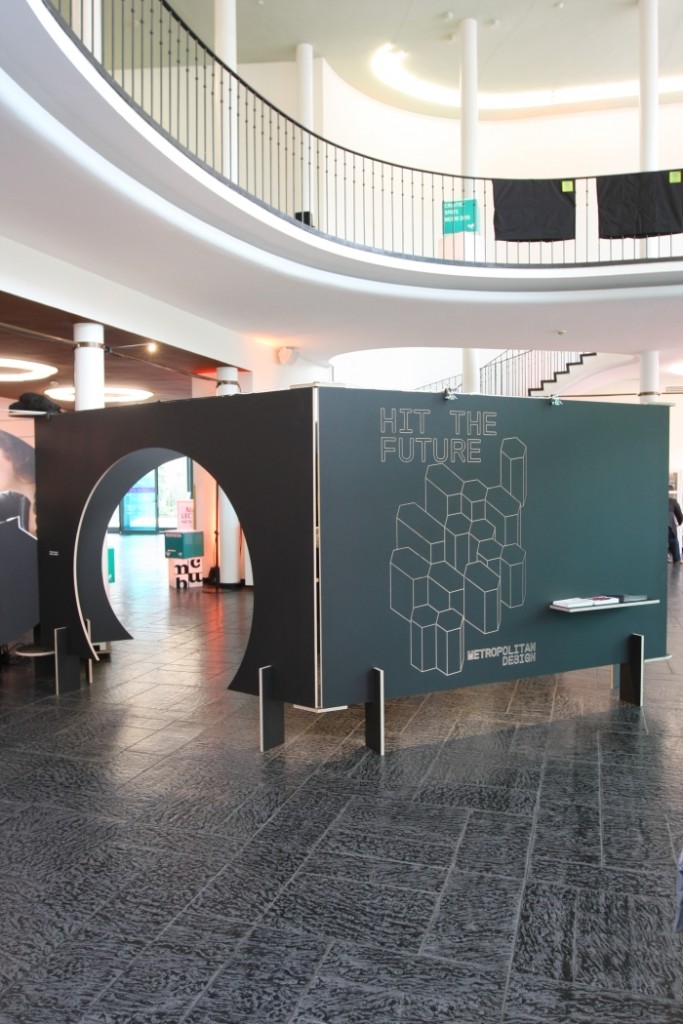Munich Creative Business Week 2015 is being staged under the motto “Metropolitan Ideas”, a banner under which the organisers aim to explore themes such as urban mobility, urban planning and the future of urban spaces generally. A central component of this focus is the exhibition Hit the Future – Metropolitan Design.
Much as it may often appear that demographic and technological changes have awoken our cities and urban spaces from a deep slumber and that they have suddenly started evolving, the truth is our cities have always evolved. And always will evolve. The trick however is not to recognise this evolution the way a startled rabbit recognises oncoming headlights, but to be prepared for the evolution. And to accept and understand that we need to evolve with our cities if we are not to be suffocated by them.
New technology, new scientific understanding and new social conditions mean the nature of how we approach this evolution is itself continually evolving. A state of affairs which places a little extra tension in the equation, meaning as it does that we have to adapt to both a changing cultural landscape and changing ways of viewing and interacting with this landscape. But then our forefathers didn’t haven’t any different, just more analogue.
In these pages we’ve recently posted on exhibitions such as, for example, Haus-Rucker-Co – Architectural Utopia Reloaded, International Village Show – Alle Dörfer an einem Ort or Matter of Life Growing new Bio Art & Design, which all deal with aspects of this preparation.
Hit the Future – Metropolitan Design is Munich Creative Business Week’s contribution to the debate.
Curated by Sarah Dorkenwald from the Bavarian regional design agency bayern design and Alexandra Weigand from Munich based Studio Satellit, Hit the Future is a follow up extension to the exhibition Hit the Future – Design Beyond the Borders staged during MCBW 2014 and presents 12 projects from young designers and architects which explore themes such as the future of food production and processing, future energy generation strategies, urban building possibilities and social relationships and projects which in their own ways are helping us prepare for the urban landscapes of the future and which provide possible answers to possible questions of how our world can and should develop.
In contrast to the more global perspective of the 2014 exhibition Hit the Future – Metropolitan Design brings the debate down to a more personal level and primarily showcases projects which in the words of co-curator Sarah Dorkenwald, “focus less on the larger systems and networks but much more on the smaller scale, where the individual is the the forefront.” Projects such as, for example, The Energy Collection from Marjan van Aubel which involves glassware with inbuilt solar cells which not only generate electricity but when placed on the specially constructed shelving system store the generated electricity for future use, Microbial Home by VHM Design Futures which explores the future home as a self-contained ecosystem where nothing is wasted or Edible Growth by Chloé Rutzerveld which proposes food processing based on a personalised 3D printing technology.
The global isn’t completely ignored however, at least not in context of social networks and projects such as, for example, Mobile Hospitality by chmara.rosinke or the Pumpipumpe urban sharing platform neatly underscore that the individual is always part of a collective and that ultimately we’re all responsible for shaping and managing our urban future. Individually and collectively.
Something the organisers hope the exhibition visitors take with them. “Ideally the visitors should be inspired and receive an impulse as to what is possible”, says Sarah Dorkenwald, “and hopefully also receive a little inspiration as to what one can do oneself, in terms of, for example, materials, resource usage or waste.”
A neatly conceived, well presented and easily accessible showcase that makes good use of videos, objects and documentation to explain the featured projects Hit the Future – Metropolitan Design isn’t extensive in scale, but it more than makes up for that in scope and depth and as such is best placed to meet such aims.
Hit the Future is being staged in the so-called MCBW Forum where in addition to a series of conferences, workshops and talks, visitors can also view Formosa Forms – Design trends from Taiwan, FragMAG, an exhibition of students magazines and Metropolitan Fictions, a series of film-clips which present various aspects and perspectives on urbanity.
Hit the Future – Metropolitan Design runs at the MCBW Forum, Alte Kongresshalle, Theresienhöhe 15, 80339 München until Sunday March 1st.
